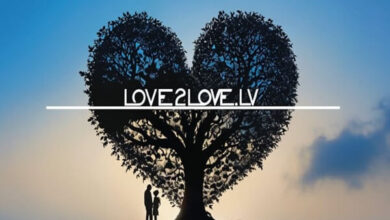Erohtos Exploring the Ancient Concept in Modern Context

Introduction
Erohtos represents an intriguing concept that has evolved from ancient philosophical traditions to find new relevance in contemporary thought. This multifaceted idea blends elements of desire, transformation, and existential purpose, offering a unique lens through which to examine human motivation and relationships. In this article, we’ll explore Erohtos’ historical roots, psychological interpretations, and modern applications across various fields including philosophy, psychology, and personal development. Whether you’re encountering this term for the first time or seeking deeper understanding, this comprehensive guide will illuminate Erohtos’ significance and practical value in today’s world.
Historical Origins of Erohtos
The concept of Erohtos traces back to ancient Greek philosophy, where it emerged as a counterpoint to more commonly discussed forms of love and desire. Unlike eros (romantic love) or agape (universal love), Erohtos represented a more complex interplay between yearning and self-realization. Early philosophical texts describe it as “the longing that transforms” – a driving force behind personal growth and creative expression. This ancient understanding positioned Erohtos as a catalyst for human development, connecting earthly desires with higher aspirations. Various schools of thought interpreted Erohtos differently, with some viewing it as a spiritual bridge and others as an intellectual motivator.
Psychological Perspectives on Erohtos
Modern psychology has reinterpreted Erohtos through several theoretical frameworks:
Humanistic Psychology View
Humanistic theorists see Erohtos as the motivational energy behind self-actualization, representing the tension between who we are and who we might become. This perspective emphasizes Erohtos’ role in personal growth and the pursuit of potential.
Jungian Interpretation
Jungian analysts associate Erohtos with the anima/animus concept, viewing it as a mediator between conscious and unconscious aspects of personality. In this framework, Erohtos drives the integration of opposing psychological forces.
Positive Psychology Approach
Contemporary researchers examine how Erohtos contributes to human flourishing, particularly in creative endeavors and meaningful relationships. Studies suggest that properly channeled Erohtos correlates with higher life satisfaction and purpose.
Erohtos in Personal Development
The concept has gained traction in self-improvement circles due to its transformative potential:
Goal Achievement
Erohtos provides the emotional fuel for pursuing challenging objectives, combining desire with disciplined action. Many achievement coaches now incorporate Erohtos principles when helping clients overcome procrastination and self-doubt.
Relationship Dynamics
In interpersonal contexts, Erohtos explains why certain connections feel particularly growth-inducing. These “Erohtic relationships” often push individuals beyond their comfort zones while providing emotional security.
Creative Process
Artists and innovators frequently describe experiencing Erohtos as a driving force behind their work – a restless inspiration that demands expression yet remains somehow unfulfilled, propelling continuous creation.
Erohtos in Professional Settings
Forward-thinking organizations have begun applying Erohtos principles to:
Employee Motivation
Progressive HR departments use Erohtos concepts to design roles that balance challenge and capability, creating what psychologists call “productive disequilibrium.”
Leadership Development
Erohtos-informed leadership training emphasizes creating visions that inspire without fully satisfying, maintaining organizational momentum and innovation.
Customer Engagement
Marketing strategists apply Erohtos dynamics to build brand relationships that evolve with consumer aspirations rather than stagnating at satisfaction.
Balancing Erohtos with Other Drives
While powerful, Erohtos requires balance with:
-
Stability needs for psychological security
-
Achievement satisfaction to prevent burnout
-
Present-moment awareness to avoid living perpetually in future potential
Mindfulness practices and emotional intelligence training can help maintain this equilibrium.
Potential Pitfalls and Misapplications
Like any powerful force, Erohtos can be misunderstood or misdirected:
Perpetual Dissatisfaction
When unbalanced, Erohtos can manifest as chronic discontent, where no achievement brings fulfillment.
Relationship Instability
Misapplied Erohtos energy may lead to constantly seeking “better” partners rather than deepening existing bonds.
Creative Block
Some artists report Erohtos becoming paralyzing when the gap between vision and execution feels unbridgeable.

Cultivating Healthy Erohtos
Practical strategies for harnessing Erohtos constructively include:
-
Reflective journaling to track and direct Erohtos energy
-
Mentorship relationships that provide both challenge and support
-
Skill-building plans that create achievable steps toward aspirations
-
Meditation practices that increase tolerance for productive discomfort
-
Creative constraints that focus Erohtos energy effectively
Erohtos in Digital Age Relationships
Modern technology has created new dimensions for Erohtos expression:
-
Online learning platforms sustain Erohtos through progressive challenge systems
-
Social media can amplify or distort Erohtos through constant exposure to potential selves
-
Virtual relationships may accelerate Erohtos dynamics through curated self-presentation
Future Directions for Erohtos Concept
Emerging research explores:
-
Neuroscientific correlates of Erohtos states
-
Cross-cultural manifestations of the phenomenon
-
Applications in AI and human-computer interaction
-
Therapeutic uses for depression and stagnation
ects of Erohtos may hold the key to sustained motivation in an often-distracting world.
Frequently Asked Questions (FAQs)
1. How is Erohtos different from ordinary ambition?
Erohtos contains an emotional/transformational component that pure ambition lacks, connecting desire with personal evolution.
2. Can Erohtos be measured psychologically?
Researchers have developed preliminary scales measuring Erohtos intensity and quality, though more validation is needed.
3. Is Erohtos always positive?
While potentially transformative, unmanaged Erohtos can lead to frustration – it requires balance with contentment practices.
4. How does Erohtos relate to mindfulness?
Mindfulness helps harness Erohtos by maintaining awareness of present reality while still aspiring toward growth.
5. Can organizations cultivate collective Erohtos?
Yes, through vision-setting that inspires without fully satisfying, maintaining innovative momentum.
6. Is Erohtos a new concept?
While the term is being redefined, the underlying dynamic has been recognized for millennia across wisdom traditions.
7. How can I tell if I’m experiencing Erohtos?
Look for: restlessness toward growth, attraction to challenging opportunities, and satisfaction that comes more from becoming than having.
8. Does Erohtos diminish with age?
Not necessarily – while表现形式可能变化, many report Erohtos shifting toward wisdom-seeking in later life stages.
9. Can Erohtos be taught or developed?
Yes, through practices that expand comfort with productive discomfort and meaningful challenge.
10. Where can I learn more about Erohtos applications?
Academic journals in positive psychology and philosophical anthropology increasingly address this concept, along with certain personal development approaches.
Conclusion: The Transformative Power of Erohtos
Erohtos offers a valuable framework for understanding the restless energy that drives human growth and creativity. By recognizing and skillfully channeling this force, individuals and organizations can transform what might otherwise be simple dissatisfaction into a powerful motivator for development. As we continue to refine our understanding of Erohtos in psychological, philosophical, and practical terms, its potential to enhance human flourishing becomes increasingly clear. Whether in personal aspirations, professional endeavors, or creative pursuits, embracing the constructive aspects of Erohtos may hold the key to sustained motivation in an often-distracting world.



